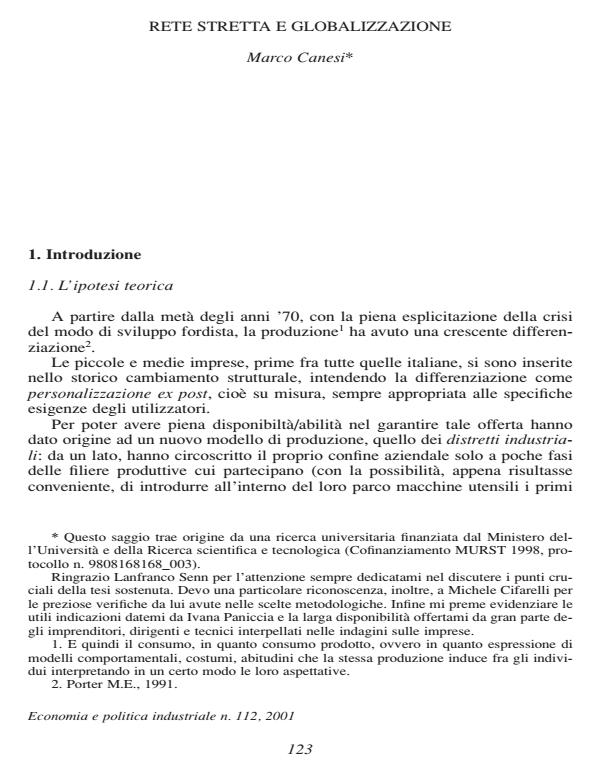Rete stretta e globalizzazione
Journal title ECONOMIA E POLITICA INDUSTRIALE
Author/s Marco Canesi
Publishing Year 2002 Issue 2001/112
Language Italian Pages 38 P. File size 148 KB
DOI
DOI is like a bar code for intellectual property: to have more infomation
click here
Below, you can see the article first page
If you want to buy this article in PDF format, you can do it, following the instructions to buy download credits

FrancoAngeli is member of Publishers International Linking Association, Inc (PILA), a not-for-profit association which run the CrossRef service enabling links to and from online scholarly content.
This study maintains that companies forming industrial districts face difficulties not so much because they lack the transnational organization adopted by larger ones but rather because they have hitherto failed to devise and carry out the organizational changes needed to overcome a crucial contradiction inherent in ex post personalization of their products, (personalization to suit the client instead of choices made from a wide but standardized available range). To preserve their market position intact these firms must of necessity be flexible but, even more important, creative which implies a small size and full independence as well as self containment and flexible intersectorial integration. To remain competitive, however, they must inevitably acquire new strategic functions which, being of a specific kind and implying economies of scale at a high level, become incompatible with one or other of their previous requisites: if internalised greater size will become unavoidable; if externalised, there must be loss of independence. It follows that regaining a leading position in world markets can only be achieved by adopting a particular kind of network organization in which both Williamsonian pure governing forms - the hierarchy (co-operation, spatial centralization) and the market (competition, spatial decentralization) - are integrally present, to avoid that compromise inherent in the mixed governing form. It is just to overcome the crucial contradiction ever present in ex post personalization that assumption is here made of a third pure governing form, alongside the other two, and to this third form the term close network has been given.
Marco Canesi, Rete stretta e globalizzazione in "ECONOMIA E POLITICA INDUSTRIALE " 112/2001, pp , DOI: